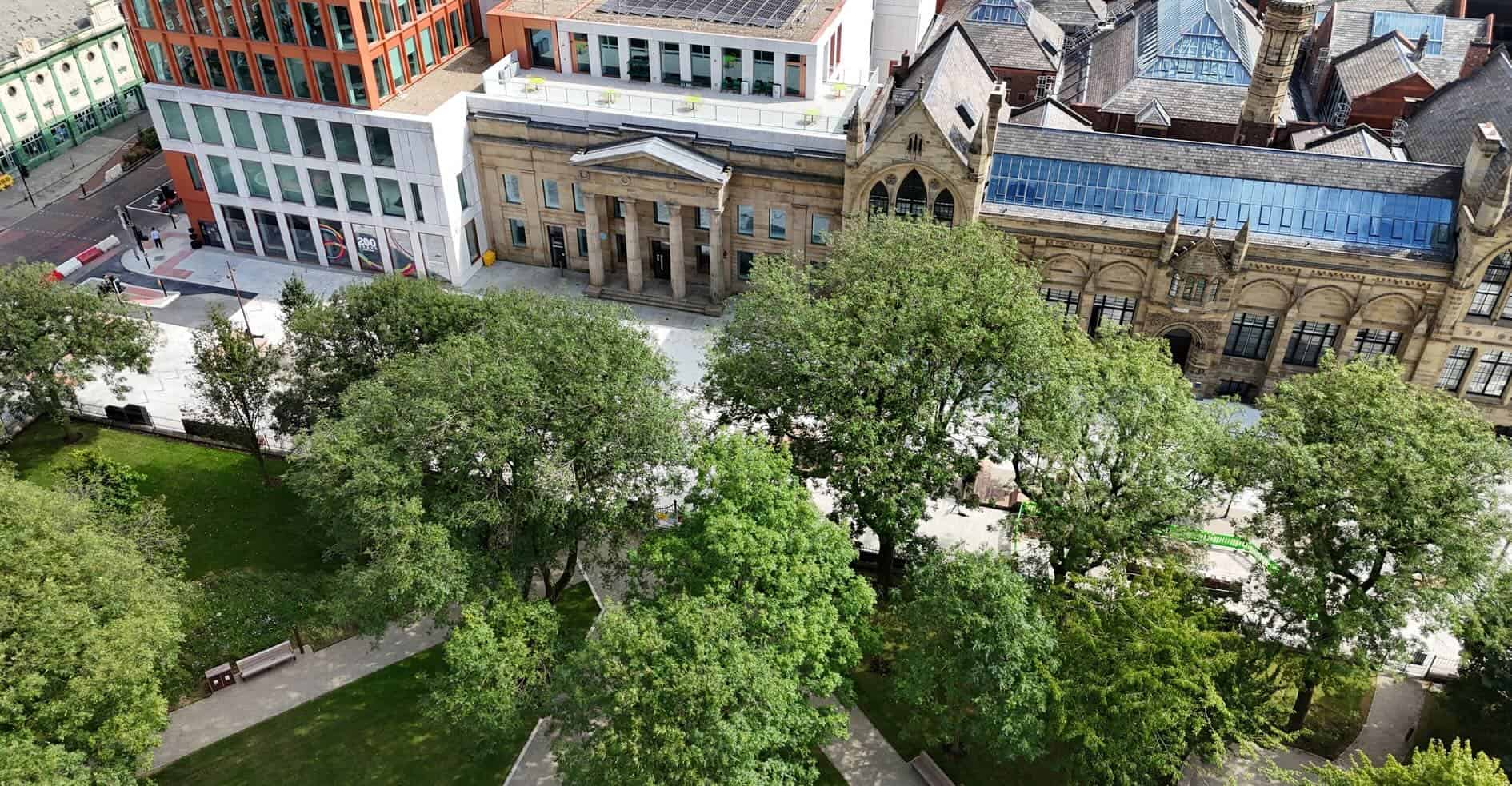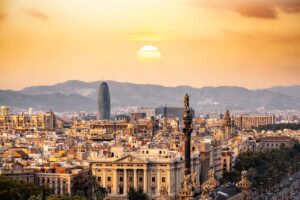The history of Manchester Met can be traced back to 1824 with the founding of the Manchester Mechanics Institution, established through private initiative and funds to teach artisans the basic principles of science by part-time study.
Now, one of the most popular universities in the UK, Manchester Met has over 43,000 students and continues the legacy embedded in its proud history of transforming lives through the power of education and research.
To mark the momentous milestone, the university had a year packed full of activities, which also served to highlight its areas of strengths:
Driving Economic Growth: Advancing skills, knowledge, and digital technology to build inclusive and sustainable economic growth and innovation, shaped by industry
Transforming Health: Enabling people to start well, live well and age well with innovative research and transformative healthcare
Championing Creative Excellence: Harnessing imagination to drive creativity, bringing architecture, art, design, fashion, media, and performance together
Leading Sustainability: Driving innovative solutions for a greener and more sustainable future through advances in science and engineering, practice, and policy
Tackling Inequalities: Building cohesive communities and helping shape a more caring, just, and inclusive society: locally, nationally, and globally.
Malcolm Press, vice-chancellor of Manchester Met commented: “By delivering on our areas of strength we continue to build a better future for all. Celebrating the 200th anniversary of Manchester Met has been a real highlight for me, especially in a year when we have achieved so much.
By delivering on our areas of strength we continue to build a better future for all.
Malcolm Press, Manchester Met
“We have continued to grow our research activity. In 2024, the University secured several large funding grants – marking a significant milestone in research grants and awards at the university. This is an indication of the quality and calibre of our research offer,” he said.
“The university also celebrated achieving TEF Gold and an amazing set of results in the National Student Survey with improvements placing Manchester Met above sector for every theme. These results highlight the university’s unwavering commitment to ensuring a positive and enriching student experience.
“2024 has been a year of progress, change and transformation. Education has a transformational effect on individuals and society. It is the key to growth, and the teaching, skills, and innovation that we provide will continue to deliver not just for the city of Manchester but to the whole country and internationally.”
A major part of this transformational year is the continued investment in campus. One of the many highlights of 2024 was the opening of Dalton building, home to the faculty of Science and Engineering and the most ambitious development project in the University’s history.
The £115m development is set to be a global hub for innovation, research, and industry collaboration. Dalton positions the university as a leader in science and technology education. Its innovative laboratories, research hubs, and active learning environments, provide a vital space for delivering excellent education and research with impact.
The opening of Dalton marked the culmination of a £400 million transformation of the campus over the last ten years. This has seen the opening of flagship buildings including the iconic School of Digital Arts (SODA) – a £35m investment to develop digital skills and drive innovation across all forms of creative content and the Institute of Sport – a world class facility championing everything that sport can do.

Historic buildings on campus have also been restored. The Ormond Building, built in 1881 is home to the University’s administrative hub and the Grade 2 Grosvenor West building in the School of Art received a £10 million upgrade.
The transformation of the campus is aligned to the university’s sustainability goals, one of which is becoming a carbon free campus and supporting the city of Manchester to become carbon neutral by 2038. The university is serious about sustainability and is proud to be in the top 5 universities in the People and Planet league for more than a decade.
Green spaces feature across campus, providing tranquility in the bustle of city life. The re-opening of All Saints Park has boosted biodiversity through the planting of new trees and wildflowers with wider improvement works contributing to creating a walkable, inclusive, and easy to navigate campus that encourages active travel through cycling, running, or walking.
The state-of-the-art facilities on campus are the enablers of excellent education, research with impact and make Manchester Met a great place to be for all students.
For those students pursuing a vocational route, Manchester Met is a leading provider of degree apprenticeships and since 2019, more than 2,500 apprentices have graduated from the university. Manchester Met highlighted the significant impact of degree apprenticeships for individuals, employers, and the wider economy through the publication of its Force for Impact report 2024.
2024 set the bar high and there is no doubt that 2025 will see the University continue to go from strength to strength. True to its progressive nature, the transformation is set to continue with plans for a new library given the green light. The visionary building will provide a modern and dynamic learning environment that places students and their learning at its core.
This is a central part of the university’s strategy to deliver excellent education for its students, and research that delivers impact to the community and world.





